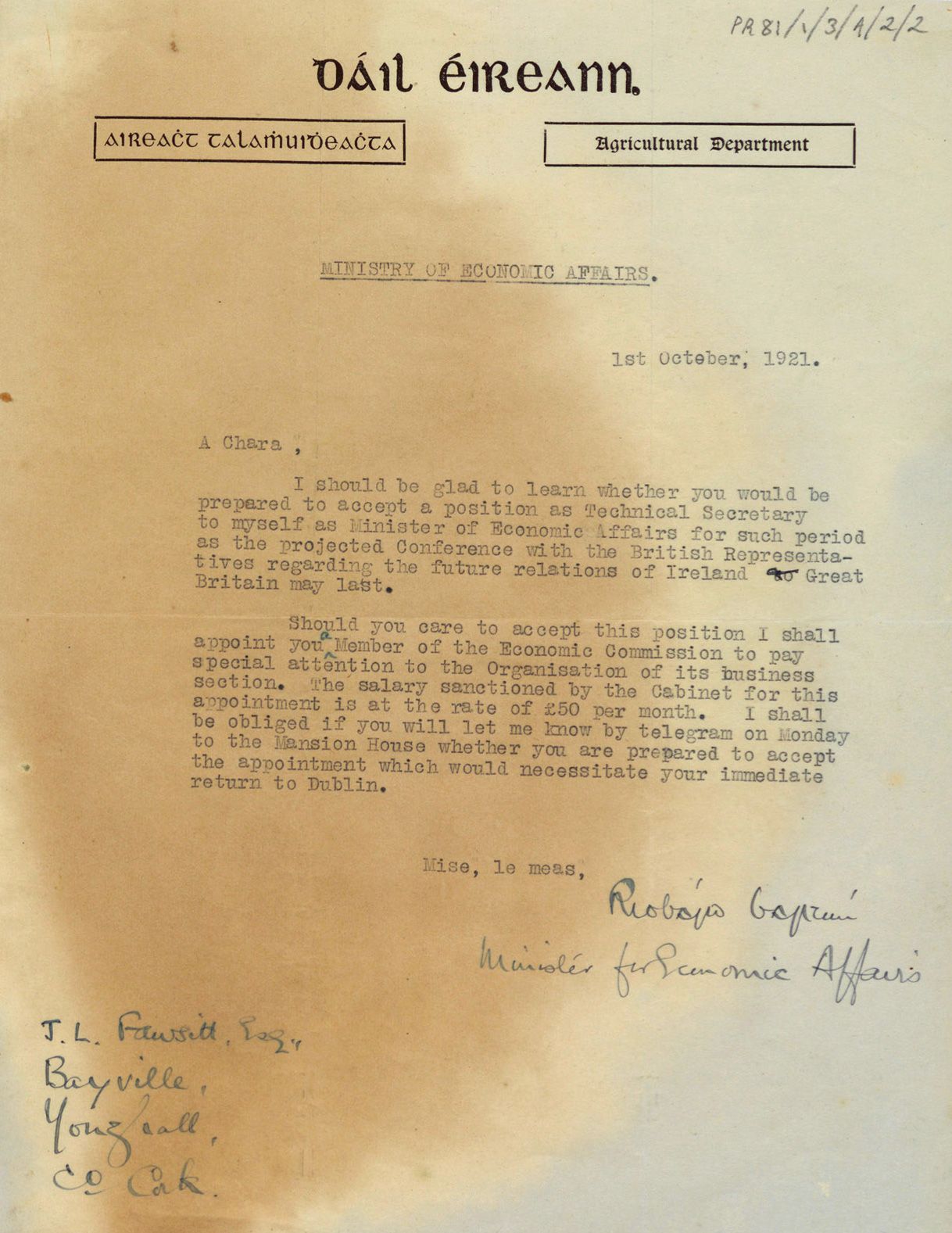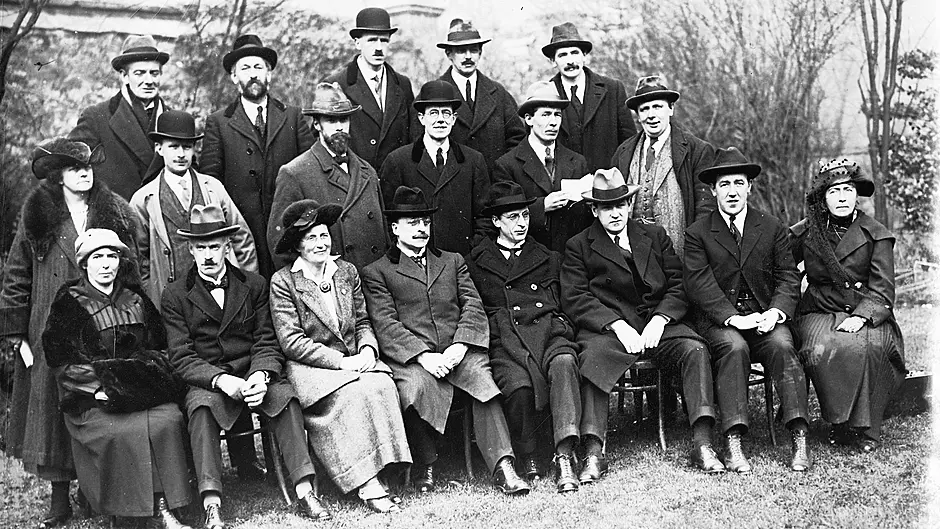MICHAEL Collins dismissed threats to his life by Irish Americans opposed to the Treaty days before he died in an ambush at Béal na Bláth, according to correspondence uncovered in a private collection of papers donated to the Cork City Archives.
The letter from Collins, dated August 19th 1922, to fellow IRB man and Irish envoy to the United States, Diarmuid L Fawsitt from Ballymacthomas in Cork city, is one of 2,000 papers belonging to the little-known but key figure in the struggle for independence.
The letter was sent by Collins from National Army General HQ in Dublin before he came to Cork where, on August 22nd 1922, he embarked on a tour of national army garrisons in West Cork, only to be killed in anti-Treaty IRA ambush while returning to the city via Béal na Bláth.
In the letter, Collins thanks Fawsitt for alerting him to the threats being made against him and fellow leading pro-Treaty figure, Richard Mulcahy by Irish Americans, before dismissing them and questioning where those making the threats were during the War of Independence.
‘I would ask you as a personal favour to tell him [leading Clann na Gael figure in New York, James K Maguire] that he need not waste his time nor his energy in inducing any of the American Irish not to come here to slay Dick Mulcahy and myself,’ writes Collins.
‘I have not the slightest doubt that we should be able to stand up to such gentlemen as we did to other gentlemen of the same persuasion for two or three years. It is a pity they did not show the same desire to come and help us when we were all fighting for our lives against the British.’
According to Cork City archivist Brian McGee, the Fawsitt papers provide a fascinating insight into the revolutionary period in Ireland, but particularly in Cork where he was a key figure in the Irish Volunteers and a close friend of murdered Lord Mayor of Cork, Tomás MacCurtain.
 A letter from Riobárd Bartúin, Minister for Economic Affairs, to Fawsitt, dated October 1st 1921, offering him the post of technical secretary to the Minister, for the Treaty negotiations. (Photo: Cork City Archives)
A letter from Riobárd Bartúin, Minister for Economic Affairs, to Fawsitt, dated October 1st 1921, offering him the post of technical secretary to the Minister, for the Treaty negotiations. (Photo: Cork City Archives)‘Diarmaid L Fawsitt was active in cultural, industrial and nationalist circles, including the Celtic Literary Society, Sinn Féin, the Gaelic League, Cork National Theatre Society, and especially the Cork Industrial Development Association in the early years of the 19th century,’ he said.
‘In November 1913 he attended the inaugural meeting of the Irish Volunteers in Dublin and was inducted into the Irish Republican Brotherhood. In December 1913 he was one of the co-founders of the Cork Corps of the Irish Volunteers at City Hall, later becoming chairperson of the executive.
‘During the War of Independence, Arthur Griffith sent Fawsitt, as consul and trade commissioner of the Irish Republic, to the USA, to be based in New York where he worked closely with Eamon de Valera who was campaigning to raise a republican loan.
‘A friend of Michael Collins, he was also a technical adviser for the Anglo-Irish Treaty negotiations in 1921-22, and after independence he served as a senior civil servant in the Department of Industry and Commerce, and a judge of the Circuit Court.’
 A newspaper report of a visit of Collins to Cork in March 1922 with Fawsitt, far left. (Photo: Cork City Archives)
A newspaper report of a visit of Collins to Cork in March 1922 with Fawsitt, far left. (Photo: Cork City Archives)Mr McGee said the decision by the Fawsitt family in 2019 to donate their grandfather’s archive of some 2,000 documents including letters, diaries, photographs, news clippings, articles, and lectures, provided an important insight into life in Cork in the early years of the last century.
‘Fawsitt, who was born in Cork in 1884 and died in 1967, was fastidious in keeping material relating to his involvement in many causes and organisations and his papers have been kept with care over generations by his family and are a valuable addition to our archive collection.’
Mr McGee said Cork City Archives staff had, with funding from Cork City Council 1920-1923 Commemorations and the Department of Tourism, Culture, Arts, Gaeltacht, Sport and Media, spent two years cataloguing the archive and have now published a detailed list of its contents.
‘The archive, which was painstakingly listed, numbered and arranged by our archivists, is now available for public access and it will be a major research asset for historians … Fawsitt was friendly with so many key figures of the period, it will undoubtedly prove an invaluable resource.’ See corkarchives.ie for more.








